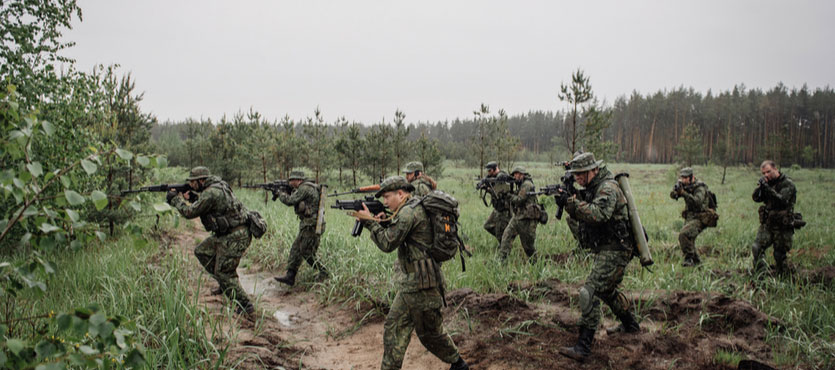In a follow up to a blog we posted recently, it now appears that a Syrian energy production company promised a Russian private military contractor a share of the profits from oil wells that the mercenaries liberated from ISIS.
The offer may be designed to entice these fighters to remain in-country, now that Russian President Vladimir Putin has unexpectedly declared victory in the ongoing conflict. The companies that allow their mercenaries to remain behind might receive up to 25% of the oil wells that they liberate, according to sources.
Tens of thousands of Russian mercenaries currently serve in Syria, and at least 73 have died there.
How We Got Here
Most regional conflicts have deep and bitter roots, and in the case of the Syrian Civil War, many people trace the roots back to the 1916 Sykes-Picot Agreement, a secret treaty between Great Britain and France. Even though these countries were still deeply involved in the bloody and indecisive First World War, which was known as the Great War at the time, these Great Powers already looked forward to dividing the spoils of war. The subject of the talks was the Ottoman Empire, a key German ally in the conflict. Although the Ottoman Turks had been in decline for several hundred years, the empire still controlled vast swaths of territory in the Middle East.
The Sykes-Picot pact drew an arbitrary line that would divide the Ottoman Empire between France and Britain. That line started on the Mediterranean coastline roughly on the modern Israeli-Lebanese border and extended all the way through what is now Iraq. That division had tremendous effects throughout the entire region. For example, Sykes-Picot permanently divided what had been informally known as Kurdistan, and the Kurds are now the largest people group in the world without a country to call their own.
Specifically for the purposes of this blog, Syria straddles this imaginary line, so the nation has long been divided. Today’s division involves terrorist-affiliated militants seeking to break strongman Bashar Assad’s stranglehold on the country. Over the past decade, the current conflict has killed an unknown number of people, perhaps as many as 300,000. Although Moscow is a longstanding friend to Damascus, the Russian Bear has been hesitant to go all-in on behalf of its ally, preferring instead to send mercenaries to prop up the Assad regime.
Now, it appears that the civil war may at last be winding down, and both public and private soldiers understandably want to be paid.
Compensation that Contractors Receive
By definition, American private military contractors are not mercenaries who can share in the spoils of war. In terms of their combat roles, these individuals are always on the defensive. They guard supply convoys, serve as escorts, and staff security checkpoints. Therefore, they may only receive regular compensation. This compensation may not be entirely “tax free,” but the IRS does have a very large foreign earned income exclusion ($104,100 in 2018).
Since they have no benefits and are not guaranteed work once their deployments end, the cash compensation is usually much higher than their military servicemember counterparts, who have generous benefits and earn the same amount of pay whether they are at their home bases stateside or in-country in Iraq or Afghanistan.
That being said, many private military contractors do earn some non-cash and/or irregular compensation in the form of things like:
- Housing allowance,
- Per diem allowance,
- Tuition reimbursement, and
- Performance/ length of service bonuses.
All these forms of compensation figure into the victim’s Average Weekly Wage computation, which forms one of the two key areas of benefits available under the Defense Base Act. Bear in mind that the AWW is not necessarily the last year’s gross income divided by 52 because there is a significant difference in compensation between a security guard in Kalamazoo and a security guard in Kabul.
Injury Compensation
Most injured overseas contractors receive two-thirds of their AWW, up to a maximum of $1,436 a week (in 2017), until they reach their maximum medical improvement. These are the temporary benefits, and they can either be total (the victim is unable to work at all during injury recovery) or partial (the victim can work but must accept light duty or some other lesser-paying position). In the latter instance, the two-thirds compensation is usually two-thirds of the difference between the old and new salaries.
Once the victim reaches MMI, hopefully the injury will be almost completely healed. If the victim is still disabled, Permanent Partial Disability or Permanent Total Disability cash benefits may be available. The amount usually depends on the victim’s AWW and also on the extent and nature of the disability. These benefits are usually retroactive to the date of the injury.
To learn about the medical benefits available to injured overseas contractors, contact Barnett, Lerner, Karsen & Frankel, P.A.

